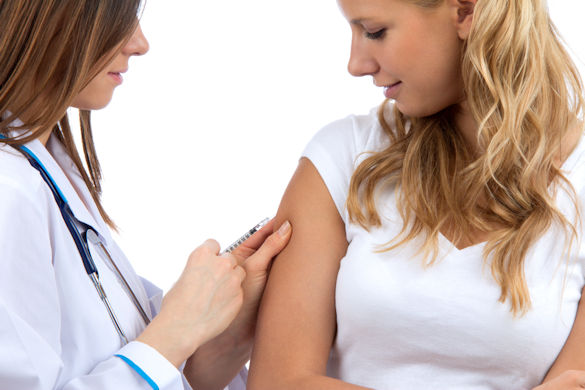There are a number of vaccinations which are on offer to students. In order to keep yourself and others safe, it’s important to check your protection against diseases such as Measles, Mumps, Rubella, Meningitis, Flu are up to date.
Meningococcal ACWY (Meningitis) vaccination
Most students from the UK have been vaccinated with the Meningitis ACWY immunisation as part of the UK schools programme. However, if you have not been vaccinated – or you are not sure – it is important you contact your GP and arrange to receive the vaccines.
The Men ACWY vaccine protects against serious infections like meningitis. You can receive this vaccine up until the age of 25. You can arrange to have the vaccination free of charge by registering with a GP in Liverpool. If you’ve not done so already you can register with our local practice here.
Measles, Mumps and Rubella (MMR) vaccination
The MMR vaccination is also part of the UK schools programme, so most UK-based students will have received this. However, if you have not received two doses of the MMR vaccine – or you are not sure – it is important you contact your GP and arrange to receive this.
Please make sure you familiarise yourself with the symptoms of meningitis, measles, mumps and rubella via the NHS website.
Flu vaccine
The flu vaccination is offered every year through the NHS to help protect people at risk of getting seriously ill from flu. The vaccine is given to people who:
- are 50 and over
- have certain health conditions
- are pregnant
- receive a carer’s allowance, or are the main carer for an older or disabled person who may be at risk if you get sick
- live with someone who is more likely to get infections (such as someone who has HIV, has had a transplant or is having certain treatments for cancer, lupus or rheumatoid arthritis)
- frontline health or social care workers.
The flu vaccine is available at GP surgeries and pharmacies. Click here to find out more.
HPV (human papilloma virus) vaccine
Female students from the UK should have been offered 2 doses of HPV vaccine in Year 8 or Year 9 when aged 13 to 15 years at school. HPV vaccine protects against the human papilloma virus that causes most cervical cancers and some anal, genital, mouth and throat (head and neck) cancers. It also offers protection against the most common genital warts caused by HPV.
Any female student who missed one or both doses of their HPV vaccine is eligible to receive this up to their 25th birthday. Contact your GP to arrange to receive this free of charge.
Find out more about the HPV vaccine on the NHS webpages.
Mpox vaccination
Mpox (previously known as monkeypox) is a rare infection most commonly found in west or central Africa. There have been some cases in the UK, but the risk of catching it is low.
Monkeypox is caused by a similar virus to smallpox. The smallpox (MVA) vaccine should give a good level of protection against monkeypox and is being offered by the NHS to people who are most likely to be exposed to monkeypox.
The NHS is offering the smallpox (MVA) vaccine to people who are most likely to be exposed to mpox.
People who are most likely to be exposed include:
- healthcare workers caring for patients with confirmed or suspected mpox
- men who are gay, bisexual or have sex with other men, and who have multiple partners, participate in group sex or attend sex-on-premises venues (staff at these venues are also eligible)
- people who’ve been in close contact with someone who has mpox – ideally, they should have 1 dose of the vaccine within 4 days of contact, but it can be given up to 14 days after
Find out more about the smallpox vaccine for monkeypox on GOV.UK.
Find out more about the signs and symptoms of monkeypox on the NHS webpages.
Covid-19 vaccinations
Only children aged 6 months to 4 years old who are at increased risk of getting seriously ill from COVID-19 can currently get a COVID-19 vaccine.
You may be able to get a seasonal COVID-19 vaccine in autumn 2023 if you’re at increased risk of getting seriously ill from COVID-19. For example, this may be due to a health condition or your age. The NHS will contact you if your NHS record suggests you may be eligible.
If you develop a new health condition or start treatment that severely weakens your immune system, your specialist may advise you to get a COVID-19 vaccine sooner. Speak to your specialist for more information.
